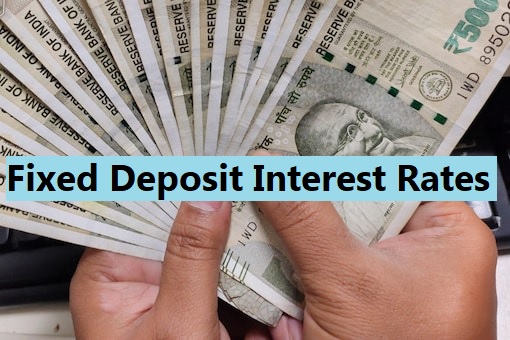If you want to keep your money safe and also want to earn a little, then the Fixed Deposit (FD) scheme of banks can be a good option for you. This is a scheme in which you deposit your money to the bank for a fixed period and in return you get interest.
Now the question is how beneficial is this scheme, where and when should one invest, and how much investment would be right? Let us understand the answer to all these questions in an easy way.
What is Fixed Deposit (FD)?
Fixed Deposit i.e. FD is a scheme in which you deposit your money in the bank and the bank gives you a fixed interest on it. The interest rate is fixed in advance and it remains the same for the entire period, even if the interest rates in the market go up or down. FD can usually be opened for a period ranging from a few months to 5 years.
Benefits of Fixed Deposit
1. Security: The biggest advantage of FD is that it is very safe. When you deposit your money in the bank, your money is safe. Apart from this, under the rules of the Reserve Bank of India (RBI), deposits up to Rs 5 lakh also get insurance, that is, if the bank goes bankrupt for any reason, then your money will be safe.
2. Fixed interest and return: The interest that is received in FD is fixed in advance and it does not change for a fixed period of time. For this reason, you know in advance what return you can expect. This is especially good for those who want a guaranteed return for their future plans, such as for children’s education or marriage.
3. Easy process: Investing in FD is very easy. You can go to any bank or post office, decide your amount and time and deposit. After this you will get a certificate, which will be proof of your investment.
4. Liquidity: Although FDs are locked for a fixed period, if you suddenly need money, you can break the FD earlier. However, by doing this you may have to pay some interest deduction, but you will still get your money back.
5. Tax Benefits: Certain types of FD schemes, such as 5-year tax saving FDs, provide income tax exemption. By investing in this scheme, you can get tax exemption of up to Rs 1.5 lakh under 80C.
Where to invest?
Banks: The most common way to invest in FDs is through banks. Whether it is a public sector bank or a private sector bank, both have good FD options. The interest rates in private banks may be slightly higher than those in public sector banks.
Post Office: The Indian Post Office also offers FDs. Here the interest rates of FDs are slightly higher than banks and this is also a safe option.
Non-Banking Financial Companies (NBFCs): Some NBFCs also offer FDs, but their security is not like that of bank FDs. Therefore, one should be careful while choosing them.
When to invest?
When interest rates rise: If you think that interest rates are going to rise, then you can invest in FDs for a long period so that you get more interest.
Market volatility: When the stock market or other investment options are volatile, FDs can be a safe option. Apart from this, if you want to avoid risk then FDs can be a good option.
In times of crisis: If you think that you may need money in the future, then investing in FD will be safe. It will give you a fixed return in the future.
4. How much to invest?
How much should be invested in FD depends on your financial goals and needs
Investment for retirement: If you want to ensure your income after retirement, then investing in FD can be good. You can deposit money in FD according to your retirement needs. However, for the long term, you can also look at other options like mutual funds or stock market.
Emergency fund: FD is also useful for creating a good emergency fund. If you get stuck in an emergency situation, you can withdraw money from FD. However, you have to keep in mind that if you break the FD early then you may lose a little interest.
Investment amount: How much should be invested depends on your financial situation. Usually, people invest 10% to 20% of their savings in FDs so that they can get some returns along with security. Apart from this, you should also see where your rest of the savings and investments are and how much you feel is better to invest in FDs.
Keep these things in mind before investing in fixed deposit
Interest rate: Before investing in FD, definitely check what are the current interest rates of the bank. Interest rates may change according to the fluctuations in the market, so check it from time to time.
Advantage of compounding: Interest in FD is compounded i.e. interest is received on interest. If you want, you can get the interest paid monthly, quarterly or yearly. Compounding can increase your returns.
Tax matters: The interest amount received on FD is taxable. If your interest income is more than Rs 40,000 (Rs 50,000 if you are a senior citizen), then you may have to pay tax.
Lock-in period: The lock-in period of FD is fixed. So before investing, make sure how long you will be comfortable locking your money.

